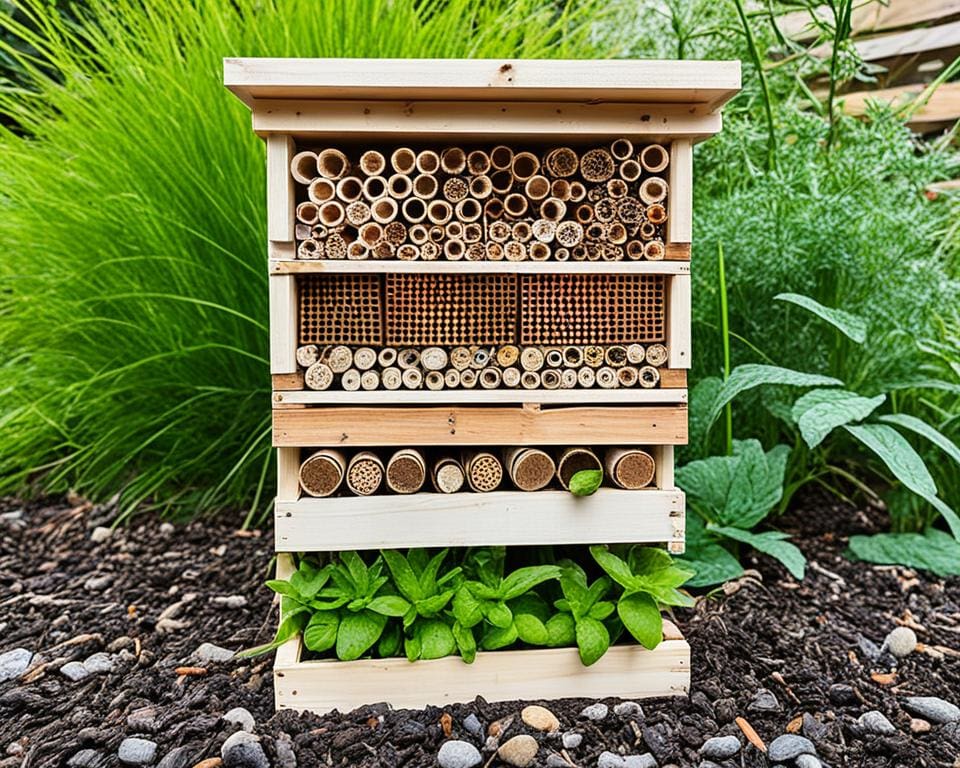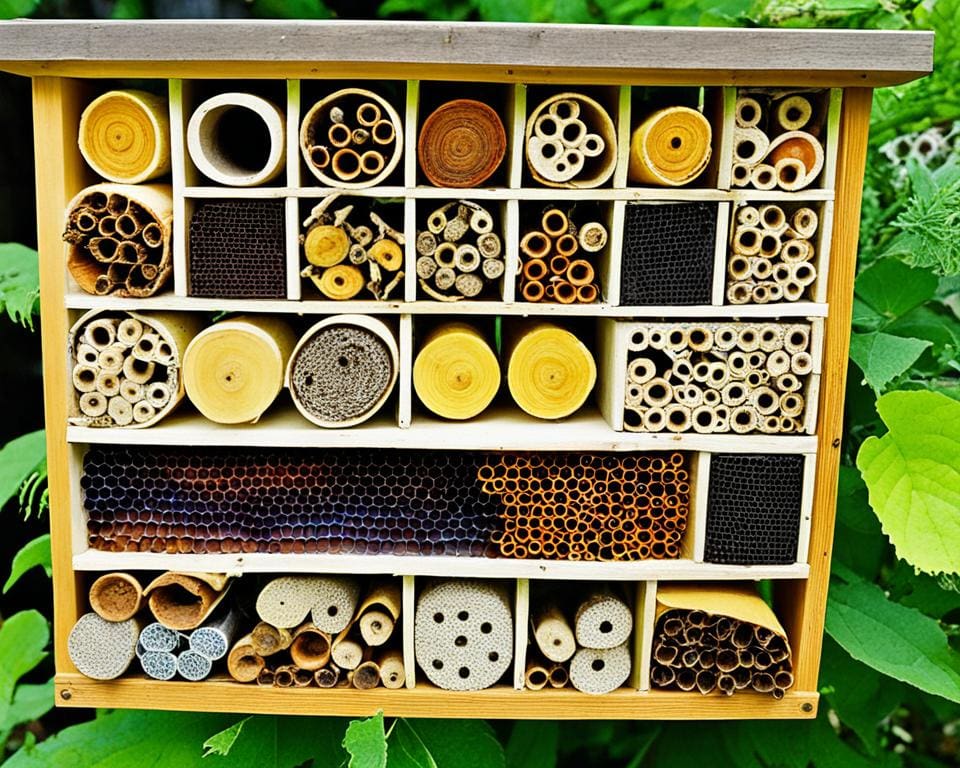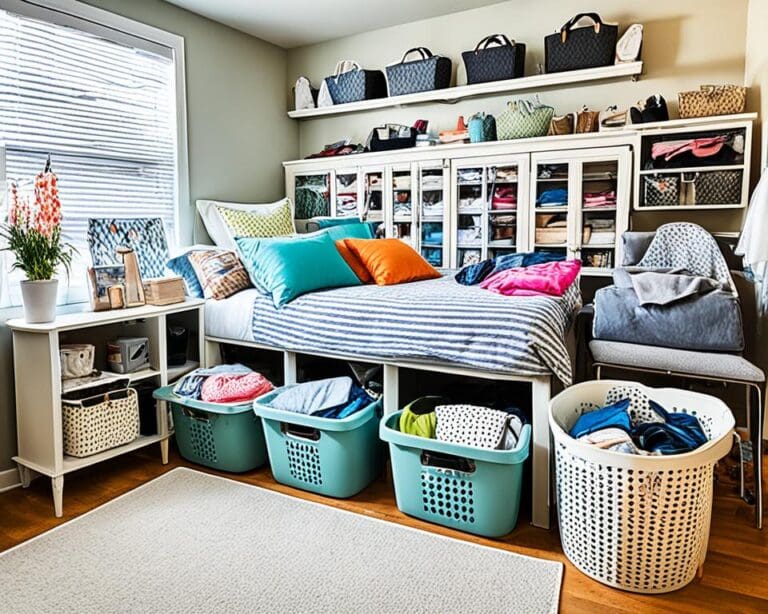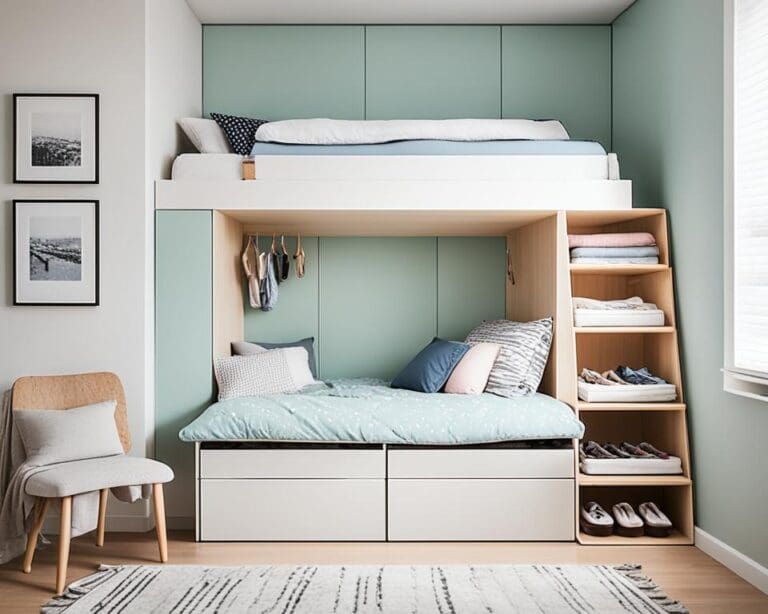Insect Hotels are crucial for our garden’s health. They provide shelter for beneficial insects. This includes solitary bees, like mason and leafcutter bees. A concerning 42% of U.S. bee colonies collapsed in 2015. This shows the need for safe habitats like Insect Hotels.
These special hotels can house over 2,000 insect species. They help with pollination and improving soil health. Because of this, they are a key part of sustainable gardening.
To help our gardens, place Insect Hotels near plants such as lavender. They should be in sunny spots. This practice not only boosts garden productivity but also helps the environment. Learning to build and upkeep these hotels is essential. They attract creatures that help our plants and animals.
Understanding Insect Hotels and Their Benefits
Insect hotels are key safe havens for many helpful insects. They make gardens and community areas richer. These structures give shelter and a safe place for various species to breed. They help ecosystems flourish. Through careful planning, insect hotels become vital for wildlife conservation and gardening that respects nature.
What Are Insect Hotels?
Insect hotels are made to attract and house helpful insects like solitary bees and ladybugs. They use natural materials and have tubes or spaces for insects. This creates a good place for pollinators. For many insects to live together, big insect hotels, or insect condos, are great for community gardens.
The Role of Beneficial Insects in the Ecosystem
Beneficial insects, including bees, lacewings, and butterflies, are crucial for the ecosystem. They help with pollination and keeping pests in check. These are important for biodiversity. Insect hotels draw these good insects to gardens, helping nature stay balanced. With about 600 wild bee types and more than 3,300 ichneumon wasp species, suitable homes can have a big impact.
How Insect Hotels Contribute to Sustainable Gardening
Insect hotels are great for gardening that supports the environment. They draw in bugs that help plants be healthy and more productive. Place them in sunny spots and protect them from bad weather for best results. Gardens with insect hotels use fewer pesticides. They create a place where plants and insects live together well. It’s important to keep these hotels clean so they keep helping insect populations. This helps with wildlife conservation and increases biodiversity in garden spaces.

Insect Hotels: Supporting Your Garden’s Ecosystem
Making an insect hotel needs careful planning and a good grasp of the species you want to help. It’s essential to pay attention to the materials, structure, and where you place it. With the right Design Considerations, you can create Effective Insect Hotels that will enhance your garden.
Design Considerations for Effective Insect Hotels
Choosing good materials is key to building an insect hotel. It’s best to use untreated wood and natural fibers, and stay away from anything synthetic. For example:
- Solitary bees like hollow tubes.
- Ladybugs prefer dry leaves, sticks, or straw.
- Lacewings enjoy corrugated cardboard.
Insect hotels can be big or small and made to house different types of insects. Adding roofs and walls protects them from bad weather. Placement is important too. Look for sunny spots near flowers to make the hotel more inviting.
Common Mistakes When Creating Insect Hotels
Often, gardeners make a few common errors with insect hotels. They might use the wrong materials or make the hotel too crowded. Without proper drainage and cleaning, mold and parasites can harm the insects. It’s crucial to check the hotel regularly. This keeps the insects safe and healthy. By sticking to the right Insect Hotel Design, your garden will flourish.
Tips for Encouraging Beneficial Insects in Your Garden
Creating a thriving pollinator habitat takes effort, but it’s worth it. Plant native flowers and shrubs. These plants are key food sources for beneficial insects like lady beetles and hoverflies. Lady beetles can eat up to 50 aphids a day. Hoverfly larvae eat about 60 aphids daily.
Enriching your garden with these plants makes it more appealing to helpful insects. They not only beautify the garden but also control pests. This is crucial for a healthy garden ecosystem.
It’s important to make your garden welcoming for beneficial insects. This means using pesticides carefully. If you must use them, pick options that are less harmful to good insects. Also, providing natural habitats like bare soil helps ground beetles thrive. These beetles are good for your garden. Such efforts attract more helpful insects, making your garden balanced and healthy.
Knowing about the ecosystems your garden supports is vital. Not all insects are pests; in fact, many are helpful. By filling your garden with native plants and reducing disturbances, you create a sustainable environment. This approach helps with biodiversity and improves your gardening. It also helps our planet’s overall ecological health.









